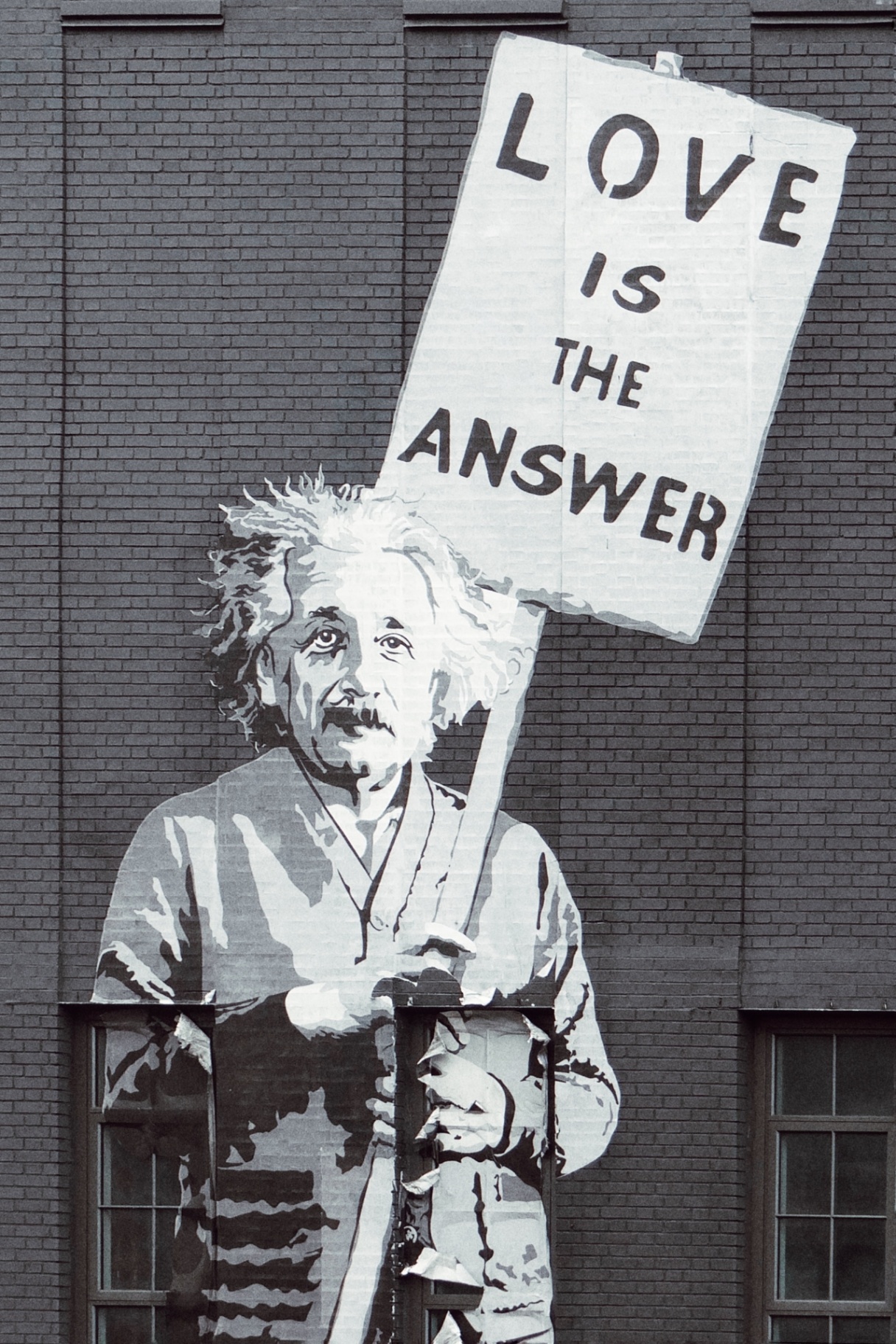THE 180-DEGREE DIFFERENCE WITH BODY/WEIGHT/FOOD ISSUES
Posted: August 1, 2015

“No problem can be solved from the same thinking that created it.” ~ Albert Einstein
Most people who come to see me about weight issues believe that that their weight, food, or body is the problem: “If I could just [be my ideal weight, eat what I should, fix my metabolism, etc.], I would be better and my life would be so much easier.” Our society’s so-called “obesity epidemic” did not originate with weight problems, however; weight wasn’t and isn’t the problem. Instead, over the centuries, authorities from various walks of life (and with various motives) have determined that people need to eat or look a certain way in order to be “good,” “attractive,” or “healthy.” It’s important to understand that the notions of what accounts for ideal food intake and physical appearance have followed fashionable trends throughout history rather than stable, consistent truths.
Our societal problem with weight is much more an outcome of those trends than it is an outcome of our lack of will power. Therefore, in the spirit of Einstein’s quote, I do not attempt to help people solve their weight issues by helping them fit into society’s current transient ideal. Instead, I help people shift to an entirely different way of thinking about (and treating) their own bodies and relationship with food. Most of the steps in that process will be highly individualized, but the first one is necessary for everyone: re-defining the problem.
The Problem:
Our society’s Diet Mentality would (currently) have us believe permanent weight loss is available to everyone who diligently consumes fewer calories than they expend or, alternatively, to all who severely restrict/eliminate whole food groups from their diet such as fat or carbohydrates. While this can work for nearly everyone in the short term, research tells us that achieving our “ideal weight” (another problematic concept, currently measured in BMI) and keeping the weight off in the long term (more than 1 year) fails in at least 95% of these cases. Furthermore, of that 95% who gain the weight back, 60% will gain back MORE weight than they lost. This pattern is virtually identical, no matter what method used to lose the weight (that’s why some are now saying that the best way to gain weight is to go on a diet). The medical profession has a better success rate treating most cancers. When 95% of the population is unable to achieve long-term weight loss through dieting, we can safely conclude that this is a “normal” outcome of dieting rather than a “failure” on the part of any individual dieter.
The truth is that diets fail people, rather than that people fail diets.
Despite this fact, the majority of people who come to me to address weight issues consider themselves failures because they haven’t been able to achieve/maintain their ideal body size, no matter what lengths they have gone to. When they see themselves as the problem (rather than our society’s Diet Mentality), they doom themselves to repeating the same behavior over and over again, hoping for a different outcome (which happens to be one popular definition of addiction).
Food and Addiction
At least 10% of our population has a diagnosable eating disorder. Another 60-70% report disordered eating patterns (popularly termed compulsive or emotional eating). Both conditions have several things in common with substance use disorders, but there are two very important differences which make changing eating behaviors even harder than changing substance use behaviors:
First
when you choose to give up alcohol or drugs, you can choose to get rid of all the substances in your house, avoid buying the substances, and avoid being around people and in situations where the substances are present. With food, however, you don’t have the luxury of an abstinence period. From day one of changing your relationship with food, you have to come to terms with food every day, multiple times per day, and keep doing it 24/7.
Second
at BEST alcohol and drugs are considered fun but morally neutral, whereas restricted food intake (which is always part of the problematic food-use cycle) is considered challenging but morally SUPERIOR. When “recovering” from problematic food-use, it is much harder to give up this morally superior position than it is to give up problematic substance use because we think (and our culture amply supports us in this notion) that restricting food is the good and right thing to do.
We see it in terms of a spectrum: on one end of the spectrum we see restricting as right and virtuous, and on the other end of the spectrum we see eating certain amounts/kinds of foods (let’s call it “bingeing” for now, but it’s not always an actual binge) as wrong and gluttonous. When we view these behaviors as located on different ends of the spectrum from one another, we conceptualize them as opposites and think of ourselves as having a choice between engaging in one OR the other, with nothing in between.
However, when we bring those two end-points of the spectrum to meet in a CIRCLE, we realize that both of these extremes actually have much more in common with each other (most people, in fact, alternate between the two, highlighting their relationship with one another), than either of them have with the 180-degree difference which is the opposite of BOTH of these two extremes.
The 180–Degree Difference
(which is strongly influenced by Health at Every Size and Intuitive Eating principles as well as the work of Karla McLaren)
- Prioritize attention to your body rather than your intellect or emotions in matters of eating, rest, and movement.
- Reposition weight as an outcome of healthy habits and self-care rather than as a goal.
- Love your body and self no matter what your size because loving your body and yourself leads to better body-attunement, self-care, and quality of life.
- Learn to manage stress through honoring and channeling your emotions rather than use food to control them.
People still concerned about their weight might say, “That sounds great, but will I lose weight this way?” My answer is that it’s complicated and depends on several variables.
First
your body may actually need you to gain some weight (especially if you have been artificially suppressing it through anorexic or bulimic behaviors) or, alternatively,
Second
your body may actually be fine right where it is, and doesn’t need to lose any weight (despite what the BMI tables tell you).
Third
you may have things going on with your body (ex: thyroid, adrenal, hormonal, or inflammatory issues) that affect weight no matter how you move or what you eat.
Finally
if your body’s systems are all healthy and functioning properly and overeating is the only reason for its weight retention, then you might (but probably won’t) lose some weight when you learn to respond to your hunger/satiety cues in sustainable ways. Even if you do, however, your weight still might not end up where you (or the BMI tables) want it to be. This approach is NOT about changing your body. It’s about changing how you think about and treat your body.
If you haven’t been able to achieve peace of mind using the principles of the Diet Mentality, at least stop inflicting the damage caused by repeating that behavior over and over again expecting different results. Try something different and see what happens: learn to partner WITH your body to help it get what it needs and move towards health. Even if your weight doesn’t end up where you’d like it to be, your relationship with yourself and your body will improve.
One of the reasons I love working with people on weight/food/body issues is because these issues are a tangible access point to address intangible issues. There is a great quote (though I don’t know who said it first):
“How you do anything is how you do everything.”
Learning to become mindfully connected to your Self through your body and your relationship with food can become a springboard for approaching many other important aspects of your life: relationships, sexuality, parenting, finances, career, aging, disease/disability, creativity, community involvement, spirituality, and even a variety of mental health conditions. By changing your relationship with your body you change your relationship with the world and everyone/everything in it, including your Self.
Sources
(produced for laypeople unless otherwise noted)
Association for Size Diversity and Health (2015). The Problem with Poodle Science.
Bacon, L. and Aphramor, L. (2011). Nutrition Journal. Weight Science: Evaluating the Evidence for a Paradigm Shift.
British Broadcasting Corporation (2013). Documentary: The Men Who Made Us Thin.
Hite, A. (2014). The Real Paleo Challenge Redux. (written by a dietitian for the 2013 Ancestral Health Symposium)
Kratina, K., King, N., & Hayes, D. (1996). Moving Away from Diets: New Ways to Heal Eating Problems and Exercise Resistance.
Matz, J. & Frankel, E. (2006). The Diet Survivor’s Handbook: 60 Lessons in Eating Acceptance and Self-Care.
Parker-Pope, T. (2011). The New York Times article: The Fat Trap.
Tribole, E. & Resch, E. (2012). Intuitive Eating: Make Peace with Food, Free Yourself from Chronic Dieting, and Rediscover the Pleasures of Eating.
Tylka, T.L., Annunziato, R.A., Burgard, D., Danielsdottir, S., Shuman, E., Davis, C., & Calogero, R.M. (2014). The Journal of Obesity (written for doctors). The Weight-Inclusive versus Weight-Normative Approach to Health: Evaluating the Evidence of Prioritizing Well-Being over Weight-Loss.

